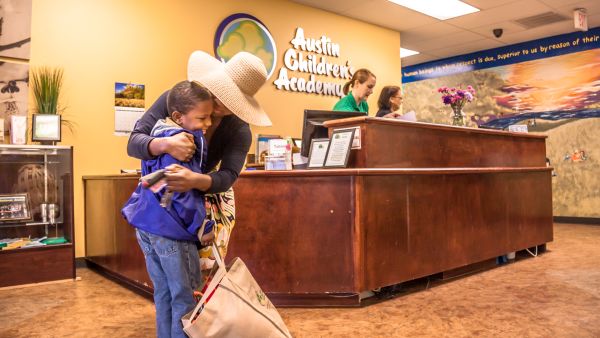
Whether you’re seeking a child’s first preschool or considering grammar school options for an older sibling, tantamount in importance is finding the right fit. Along with the physical building, safety, accreditations, local recommendations, and the experience of the teachers, you’ll need to consider the school’s educational philosophy.
The Montessori Method was developed at the turn of the twentieth century by Dr. Maria Montessori, who observed that students learned best when their natural curiosity was harnessed, encouraged, and expertly guided. Her methods were so successful that they were swiftly adopted by progressive educators and are now implemented in thousands of schools worldwide.
The Montessori Method of education offers these five advantages:
An Individualized Learning Plan
Children learn in different ways and at different rates, which can be frustrating when a student is faced with a one-size-fits-all educational plan. In a Montessori school, the teacher will observe your child’s social and academic skills and determine what the child needs in order to reach certain age-appropriate benchmarks, without being bored by a lesson she’s already mastered or frustrated by one that she’s not ready for. Armed with this empirical data, the teacher will develop an individualized learning plan as a guide for your child’s education.
Independence And Initiative
At the heart of a Montessori school day is an extended free period, often several hours, where children are encouraged to explore the open plan of the classroom. Your child will have the freedom to choose what activity she’d like to engage in, what toys she’d like to play with, and what new thing she’d like to learn. Teachers don’t lecture at the front of the classroom, but rather harness your child’s curiosity to nudge his academic understanding forward in an organic way. The vital core values of independence, self-sufficiency, and initiative are thus encouraged.
Critical Thinking
A Montessori classroom is full of colorful, tactile-rich, well-crafted toys that have been designed with the method philosophy in mind. Many of them are self-correcting, such as shoelace-lacing boards or button-boards that clearly reveal mistakes, so that a child just learning these skills can assess his work and re-do it. Critical thinking and independent mastery promotes self-reliance and real, deep-seated self-esteem.
Social Smarts
A typical Montessori classroom is designed to hold students whose ages span about three years. The goal of this arrangement is to encourage a family-like, big-brother and big-sister atmosphere of closeness and kindness. Younger children look up to their older classmates, who often become mentors. Those younger children then age up into a big sister or big brother role, gaining confidence and necessary interpersonal skills. Conflict resolution, mutual respect, and the ability to work successfully in groups are vital skills that a Montessori teacher models and encourages.
A Lifelong Love Of Learning
A Montessori school’s main tenet is that children will learn when they follow their own curiosity. Fanning the flames of that curiosity will not only lead them to the basics, but it will also show them that learning can be joyful, fun, and well worth the labor. A child who is encouraged to follow his or her academic passions in order to master what interests him is a child who will be undaunted by setbacks. Self-reliant, self-regulating, and academically passionate children will grow up to do well in high school, in college, and, most importantly, in the greater world.
















